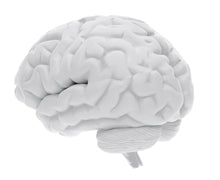
People tend to take more of an interest in healthy eating as they get older, in part to maintain brain health. But new research from Australia shows it’s best to start earlier if possible. Scientists from Deakin University found healthy eating during midlife could be the key to increased brain volume and a reduced risk of dementia and other degenerative brain disorders as people age.
Dr. Helen Macpherson, from Deakin’s Institute for Physical Activity and Nutrition, was looking for the impact diets had on brain health and published her findings in the Journal of Alzheimer’s Disease. She looked at the eating habits and brain volumes of adults between the ages of 40 and 65 and found some interesting results.
Those who consumed a healthy variety of foods including plenty of vegetables, fruits, grains and good oils had more grey matter and larger brain volume than those who consumed diets with less of those choices.
"There is no blood test that can detect dementia during midlife, but brain volume is an important indicator of brain health," Dr. Macpherson said. "Brain volume begins to decrease, relative to head size, from midlife into old age and we know increased brain shrinkage can precede dementia. This research tells us that diet quality needs to be addressed well before old age so that people can give themselves the best chance of reducing dementia risk."
Dr. Macpherson and her team looked at data from 20,000 people from the UK Biobank, which is a database of genetic and health information. The participants completed a diet recall analysis which was analyzed for three measures of diet quality. They also underwent an MRI to measure brain volume.
"We looked at the Mediterranean Diet Score, or how closely people's diets aligned with the Mediterranean diet, as this particular dietary pattern has been widely studied in relation to dementia risk and brain health," Dr. Macpherson said. "But we also looked at how well people's diets match dietary guidelines, including from the World Health Organization (WHO), which recommend eating plenty of fruit and vegetables, grains, low fat dairy, lean meat or its alternatives, while avoiding processed or junk food."
Both diets were helpful in terms of brain volume but researchers did notice the association between brain volume and diet was greater in men than women.
"We need to look more closely at why diet has a greater impact on brain volume in men than in women," Dr. Macpherson said. "But, overall, these findings suggest midlife may be a really important life stage to address unhealthy eating habits, not just to reduce the risk of chronic diseases such as diabetes and heart disease, but to protect brain health."
Click here to read more in the Journal of Alzheimer’s Disease.



